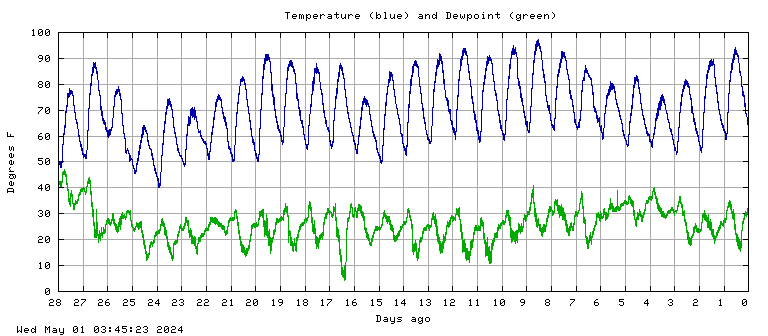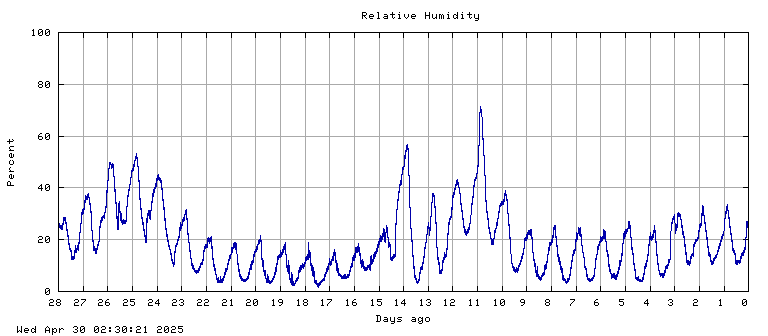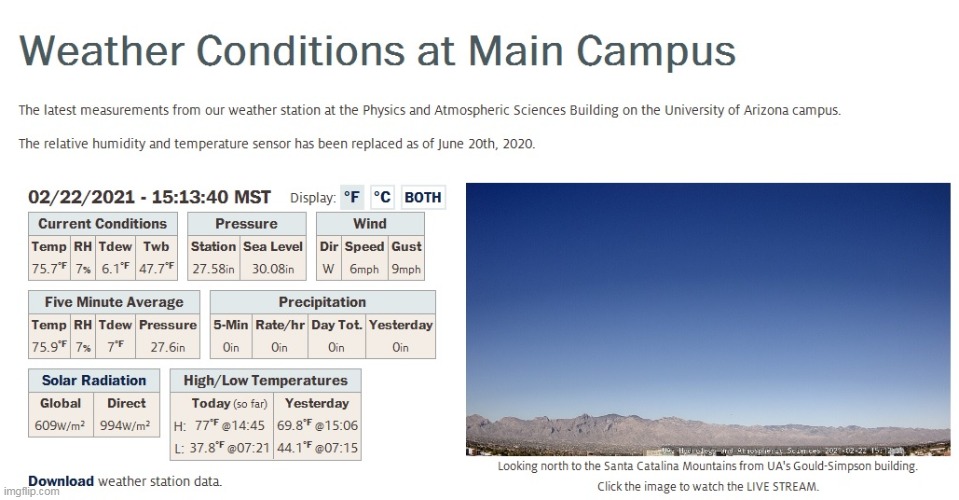Join the Hide community
Get access to live stream, lessons, the post exchange, and chat with other snipers.
Register
Download Gravity Ballistics
Get help to accurately calculate and scope your sniper rifle using real shooting data.

Install the app
How to install the app on iOS
Follow along with the video below to see how to install our site as a web app on your home screen.
Note: This feature may not be available in some browsers.
You are using an out of date browser. It may not display this or other websites correctly.
You should upgrade or use an alternative browser.
You should upgrade or use an alternative browser.
Night Vision Lifespan of Thermal Optics?
- Thread starter MtnGhost
- Start date
When does the manufacturer’s warranty run out and is the thermal in question ever going to pass through @TheHorta’s hands? 
Everything I think passes through Horta's hand. Mash had "Hot Lips" Houlihan. We got "Hot Hands Horta"When does the manufacturer’s warranty run out and is the thermal in question ever going to pass through @TheHorta’s hands?
Hoping my adoption papers show up soon. Hot Hands Jr has a nice ring to it.
I have an HHTI from 1996 that worked until I lent it to my nephews earlier this year and somehow they plugged it into a power pack and fried something, because they didn't want to carry around the big ass batteries, so now it doesn't work.
While I haven't used that scope in awhile, it has sentimental value, as I broke my thermal cherry with it.
I'm an idiot for lending it to my ass hat nephews.
I also have an Elcan spectre IR50B from 2010.
I used that scope a lot and still use it as a backup to my backup and it'll still work great for the foreseeable future, as long as I don't let my nephews use it.
In conclusion, thermal will last awhile, as long as it's a quality product, you maintain them and you don't let ass hats use them.
While I haven't used that scope in awhile, it has sentimental value, as I broke my thermal cherry with it.
I'm an idiot for lending it to my ass hat nephews.
I also have an Elcan spectre IR50B from 2010.
I used that scope a lot and still use it as a backup to my backup and it'll still work great for the foreseeable future, as long as I don't let my nephews use it.
In conclusion, thermal will last awhile, as long as it's a quality product, you maintain them and you don't let ass hats use them.
I would not count on anything lasting longer than the manufacturer's warranty because after that runs out, often the company won't service them.
You should be able to get thousands of hours of use out of them. There are factors that will shorten their use life, like nephews noted above, but otherwise, they are electronic devices.
With that said, I have been running an IR Defense (now Trijicon) IR Hunter since fall of 2015 and I hunt a lot (multiple nights a week)
You should be able to get thousands of hours of use out of them. There are factors that will shorten their use life, like nephews noted above, but otherwise, they are electronic devices.
With that said, I have been running an IR Defense (now Trijicon) IR Hunter since fall of 2015 and I hunt a lot (multiple nights a week)
IR HUnter shit seems to last forever. I don’t have a box of dead thermals yet. But it was getting there.
Ouch. That highlights a very good point though - external power sources have the potential to fry shit! (And ass hat relatives lol)I have an HHTI from 1996 that worked until I lent it to my nephews earlier this year and somehow they plugged it into a power pack and fried something, because they didn't want to carry around the big ass batteries, so now it doesn't work.
While I haven't used that scope in awhile, it has sentimental value, as I broke my thermal cherry with it.
I'm an idiot for lending it to my ass hat nephews.
I also have an Elcan spectre IR50B from 2010.
I used that scope a lot and still use it as a backup to my backup and it'll still work great for the foreseeable future, as long as I don't let my nephews use it.
In conclusion, thermal will last awhile, as long as it's a quality product, you maintain them and you don't let ass hats use them.
When does the manufacturer’s warranty run out and is the thermal in question ever going to pass through @TheHorta’s hands?
I would not count on anything lasting longer than the manufacturer's warranty because after that runs out, often the company won't service them.
You should be able to get thousands of hours of use out of them. There are factors that will shorten their use life, like nephews noted above, but otherwise, they are electronic devices.
With that said, I have been running an IR Defense (now Trijicon) IR Hunter since fall of 2015 and I hunt a lot (multiple nights a week)
Bingo, the warranty duration is what got my mind thinking about how long the components are expected to last. I know that i2 tubes have some typical minimum service life periods (e.g. 10K hours with the L3 tubes), so I figured thermal components had their own specifications that thermal manufacturers used in part to base the warranty terms off of.
Fine, 26.9 months.
I guess that's longer than the Mean Time Before Trolled (MTBT) on the Hide lol
I have an older Mil MTM V2 IR laser that I’ve had about 10 years. It is used very often as a donor scanner and both image/processor/laser still work like when I first received it. If it at all matters....
Last edited:
Thermal devices don't have clearly defined MTBF numbers. There are no known degradation mechanisms except general aging of electronic components and displays, potential degradation of sensor seal, etc. System-level MTBF analysis is a complicated task that rarely brings meaningful results for multi-component electronic systems. Thermals are quite different in this respect from I2 night vision. Will thermals eventually fail? Absolutely, but it's close to impossible to predict when and why it is going to happen. The only way to extend the service life of thermals that I can think of is to keep them in a dry place + re-purge every once in a while to make sure that there is no moisture build-up inside the unit. Electronics and water is not a good combination.
So is there any basis to the freezer/refrigerator storage enhancing longevity?Thermal devices don't have clearly defined MTBF numbers. There are no known degradation mechanisms except general aging of electronic components and displays, potential degradation of sensor seal, etc. System-level MTBF analysis is a complicated task that rarely brings meaningful results for multi-component electronic systems. Thermals are quite different in this respect from I2 night vision. Will thermals eventually fail? Absolutely, but it's close to impossible to predict when and why it is going to happen. The only way to extend the service life of thermals that I can think of is to keep them in a dry place + re-purge every once in a while to make sure that there is no moisture build-up inside the unit. Electronics and water is not a good combination.
why would you want to put an electro- optic in a freezer for storage? there's a simple level of humidity in there. a normal controlled environment of 70f and low humidity makes everything on planet earth happy including electronics.
why would you want to put an electro- optic in a freezer for storage? there's a simple level of humidity in there. a normal controlled environment of 70f and low humidity makes everything on planet earth happy including electronics.
I don't know personally, I was hoping one of the gurus could shed some light on the topic, Low_drag in this thread from 2013 claims to have been a designer of microbolometers, he goes on to state, " If you want to increase the detectors longevity or life, then store it in your refrigerator when not in use. That will significantly increase your vacuum life by reducing the outgassing rate, which doubles for every 10C above ambient. When it looses vacuum, the unit is useless."
I was designing the uncooled detectors for DRS until last year, which is L3's competitor, and I think insight was using our Vox detectors. Kind of like Raytheon using our cooled detectors in their systems. Sounds like an oxymoron doesn't it, we would compete for contracts at the system level, then we would sell them detectors at a subsystem level. Anyway, the low warranty life is either due to vacuum life in the detector or the thing doesn't handle gun fire to well. We would test competitors products at the range and destroy them under M4 gun fire. We always had the best detectors and had the most robust designs, but that cost a little more. Lower priced wins contracts rather than works good and last longer. Many military system level FLIR's actually use DRS detectors. We sold some stuff for the civilian market, but it was the scrap pile that wouldn't meet the mil spec test. The mil spec test were rediculously stringent some what. Long story short, short warranty means low confidence in product by company. All of our warranties were for 5 years and that was only due to vacuum life.
Mechanically speaking, it all depends on the the weapon, how it's mounted, and what caliber. The M4 was the harshest platform we tested on, it saw the most g's when the bolt went back into battery. We tested 300 WM, 338 LM, and 50 BMG, all of which had a suppressors or muzzle brakes and were bolt actions. If you want to increase the detectors longevity or life, then store it in your refrigerator when not in use. That will significantly increase your vacuum life by reducing the outgassing rate, which doubles for every 10C above ambient. When it looses vacuum, the unit is useless.
It appears that Low_drag hasn't posted since Feb 14, 2015, that's way before I joined, so I don't know, but I'd sure like to find out more from the experts here, my eyes kind of glaze over when you guys go into athermalization and lens composition choices.....
This seems to be the next question:
"By ambient, does that mean if my thermal is already at 100 degrees Fahrenheit, that if I keep it at 100 degrees, there should be no increase in outgassing? Or is ambient referring to STP? I'll store my thermals in the fridge if it'll make it last longer - just don't want to make it worse if it's actually warming/cooling that increases outgassing."
Man, I'd love to dive into that statement more if low_drag is still active.
By ambient, does that mean if my thermal is already at 100 degrees Fahrenheit, that if I keep it at 100 degrees, there should be no increase in outgassing? Or is ambient referring to STP? I'll store my thermals in the fridge if it'll make it last longer - just don't want to make it worse if it's actually warming/cooling that increases outgassing.
He has not posted since Feb 14, 2015
Not to be a dick, but my air conditioner has run every day for the last two weeks.
I know that it's hard to conceive, Arizona is dry and hot, sorry and apologies to those of you living in a white hell, you don't have to shovel sunshine...... oh, how I suffer......



 www.atmo.arizona.edu
www.atmo.arizona.edu

....it was 80* in my bedroom when I turned on the a/c at noon.
.........sorry

I know that it's hard to conceive, Arizona is dry and hot, sorry and apologies to those of you living in a white hell, you don't have to shovel sunshine...... oh, how I suffer......



UA Hydrology and Atmospheric Sciences
The University of Arizona's Department of Hydrology and Atmospheric Sciences.

....it was 80* in my bedroom when I turned on the a/c at noon.
.........sorry

Last edited:
The lifespan of kids who learn to shoot is longer than the thermals

 www.snipershide.com
www.snipershide.com

GGWG's & Kids S.A.F.E. Foundation Let's Do This!
One of our Brothers, @earthquake brought this up regarding the Kids S.A.F.E. Foundation. Myself and a number of others have looked into this, and as far as Good Guy's With Guns and The Squirrel Mafia is concerned, this is a WINNER all the way around. Here is the link for donations and some...
"If you want to increase the detectors longevity or life, then store it in your refrigerator when not in use. That will significantly increase your vacuum life by reducing the outgassing rate, which doubles for every 10C above ambient. When it loses vacuum, the unit is useless."
This statement is obviously correct, and keeping a thermal detector at a lower temperature will somewhat increase its service life. However, this is a statement strickly about detector outgassing, which is only one of the potential factors affecting a thermal imaging device's life expectancy. I'm pretty sure that high humidity will kill any scope much faster than outgassing. I would say that keeping your scope in a deep vacuum at the lowest possible temperature if you have access to the necessary vacuum/cryogenic equipment is the absolute best solution (unless your device has internal batteries of some sort in it). Otherwise, your best bet is a reasonably dry place. A freezer/refrigerator does not qualify as dry. And remove your batteries for storage
This statement is obviously correct, and keeping a thermal detector at a lower temperature will somewhat increase its service life. However, this is a statement strickly about detector outgassing, which is only one of the potential factors affecting a thermal imaging device's life expectancy. I'm pretty sure that high humidity will kill any scope much faster than outgassing. I would say that keeping your scope in a deep vacuum at the lowest possible temperature if you have access to the necessary vacuum/cryogenic equipment is the absolute best solution (unless your device has internal batteries of some sort in it). Otherwise, your best bet is a reasonably dry place. A freezer/refrigerator does not qualify as dry. And remove your batteries for storage
"reducing the outgassing rate, which doubles for every 10C above ambient.""If you want to increase the detectors longevity or life, then store it in your refrigerator when not in use. That will significantly increase your vacuum life by reducing the outgassing rate, which doubles for every 10C above ambient. When it loses vacuum, the unit is useless."
This statement is obviously correct, and keeping a thermal detector at a lower temperature will somewhat increase its service life. However, this is a statement strickly about detector outgassing, which is only one of the potential factors affecting a thermal imaging device's life expectancy. I'm pretty sure that high humidity will kill any scope much faster than outgassing. I would say that keeping your scope in a deep vacuum at the lowest possible temperature if you have access to the necessary vacuum/cryogenic equipment is the absolute best solution (unless your device has internal batteries of some sort in it). Otherwise, your best bet is a reasonably dry place. A freezer/refrigerator does not qualify as dry. And remove your batteries for storage
So what is "ambient" temp? (in C or F?)
What "offgasses" out of the microbolometer?
Low_drag said:
All materials outgass to a certain extent, some more than others. That is why we made the packages or detectors out of metal and ceramic, and sealed with solder or a pinched copper tube. There is a getter material inside the vacuum package that absorpes molecules to maintain the vacuum. Some packages have longer vacuum lifes depending on the volume of vacuum, the internal surface area of the package walls to outgas, and how much getter capacity you designed in. The vacuum lifes got shorter as we kept shrinking the packages for smaller system sizes. The volume and internal surface area doesn't shrink at the same rate. So the larger the package the better the life. I'm talking about the detector inside the scope itself. Gen 1-4 is a totally different technology and has no correleation to IR systems. Placing the scope in a vacuum will do you no good but the refrigerator will.
Ambient temperature, a.k.a. normal temperature, if I remember correctly, is defined as 70F (21C).
Theoretically, the comment about not putting the scope in the vacuum is correct from the sensor's package point of view but not from the system level (sensor + electronics) perspective.
Outgassing (a.k.a. offgassing): everything outgasses (metals, ceramics, oils, residual soldering flux, etc.) but at different speeds. In general, solid crystalline structures outgass much less than non-crystalline.
Theoretically, the comment about not putting the scope in the vacuum is correct from the sensor's package point of view but not from the system level (sensor + electronics) perspective.
Outgassing (a.k.a. offgassing): everything outgasses (metals, ceramics, oils, residual soldering flux, etc.) but at different speeds. In general, solid crystalline structures outgass much less than non-crystalline.
Ambient temperature, a.k.a. normal temperature, if I remember correctly, is defined as 70F (21C).
Theoretically, the comment about not putting the scope in the vacuum is correct from the sensor's package point of view but not from the system level (sensor + electronics) perspective.
Outgassing (a.k.a. offgassing): everything outgasses (metals, ceramics, oils, residual soldering flux, etc.) but at different speeds. In general, solid crystalline structures outgass much less than non-crystalline.

(PDF) MEMS-Based Uncooled Infrared Bolometer Arrays–A Review
PDF | Uncooled infrared bolometer arrays have become the technology of choice for low-cost infrared imaging systems used in applications such as... | Find, read and cite all the research you need on ResearchGate
3.4 Bolometer vacuum package
Bolometers need to be packaged in vacuum for best performance. Therefore, conventional bolometers operate with
vacuum levels < 0.01 mbar [47]. Important requirements for the packaging of bolometer arrays are: good and reliable
hermetic seal; integration of IR window material with good infrared transmission; and high yield low cost packaging.
Both reliability and cost of MEMS is heavily related to the encapsulation techniques chosen. For MEMS based
bolometers, packaging may be done at chip level or wafer level. The most common way of packaging is to build the
bolometer chip into a hermetic metal or ceramic package with an IR-transmitting lid build into the package cap.
An important advantage for MEMS based bolometer arrays is the possibility this technology offers for low cost wafer
level vacuum packaging with methods that has become available the last few years. Several alternative methods for
wafer level packaging are already developed by the MEMS industry. Hermetic methods include low temperature fusion
bonding, anodic bonding, glass frit bonding, and metal based bonding that includes thermo-compression bonding,
eutectic bonding and soldering.
--------------------
So am I understanding that the point of maintaining overall low temperature is to avoid thermal movement which would compromise the seal?
The sensor used in the Hikvision DS-2TD2166-15/V1 is IRAY RTD6171MR with 640×512 pixels (17µm Pitch) 60Hz (Analog Output), SMD.

Figure 6: Microbolometer – IRAY RTD6171MR. Click to enlarge the image. (Source: System Plus Consulting)

Figure 7: RTD6171MR 17µm Microbolometer – Disassembly. Click to enlarge the image. (Source: System Plus Consulting). The Getter significantly reduces the outgassing and keeps the pressure low in the package cavity.
----------------------------------------------------
"The Getter significantly reduces the outgassing and keeps the pressure low in the package cavity."
So am I understanding that "the getter" is "vanadium oxide" OR protects the vanadium oxide?
Can you dumb this down for me?
Most of the microbolometers used in thermal imaging cameras use vanadium oxide as the absorbent material because of the better thermal contrast that ensures more accurate and defined images.
Under these conditions, the Vanadium Oxide material has a lower Johnson noise voltage and therefore the measurement will be subject to less noise.
The Johnson noise voltage depends on three conditions: resistor value, circuit bandwidth and temperature.
-----------------------
So the overall package lifespan is dependent upon overall exposure to oxygen, and oxygenation of the Vanadium oxide layer is accelerated by heat?
..palladium may inhibit the oxygenation and increase the lifespan of the cell?
A recent development, carried out at CERN for particle accelerator applications, showed that a vacuum chamber coated with a thin getter film and then exposed to ambient air may be transformed into a pump by “in situ” heating at temperatures as low as 180°C.
Heating activates the diffusion into the film of the oxygen present in the surface passivation layer. Repeated air exposure–activation cycles progressively enrich the film with oxygen, reducing its performance and shortening its operating life.
--------------------------
In other words vanadium oxide "cooks off" or is over-oxygenated after a limited period of exposure to heat above ambient temperature and the length of time necessary to consume "the getter", which acts as a sacrificial material to protect the vanadium oxide sensor by absorbing oxygen to prevent further oxygenation of the vanadium oxide, is directly proportional to the volume of material in the designed microbolometer package?

Figure 6: Microbolometer – IRAY RTD6171MR. Click to enlarge the image. (Source: System Plus Consulting)

Figure 7: RTD6171MR 17µm Microbolometer – Disassembly. Click to enlarge the image. (Source: System Plus Consulting). The Getter significantly reduces the outgassing and keeps the pressure low in the package cavity.
----------------------------------------------------
"The Getter significantly reduces the outgassing and keeps the pressure low in the package cavity."
So am I understanding that "the getter" is "vanadium oxide" OR protects the vanadium oxide?
Can you dumb this down for me?
Most of the microbolometers used in thermal imaging cameras use vanadium oxide as the absorbent material because of the better thermal contrast that ensures more accurate and defined images.
Under these conditions, the Vanadium Oxide material has a lower Johnson noise voltage and therefore the measurement will be subject to less noise.
The Johnson noise voltage depends on three conditions: resistor value, circuit bandwidth and temperature.
-----------------------
So the overall package lifespan is dependent upon overall exposure to oxygen, and oxygenation of the Vanadium oxide layer is accelerated by heat?
..palladium may inhibit the oxygenation and increase the lifespan of the cell?
https://www.researchgate.net/publication/237705049_Vacuum_properties_of_palladium_thin_film_coatings
A recent development, carried out at CERN for particle accelerator applications, showed that a vacuum chamber coated with a thin getter film and then exposed to ambient air may be transformed into a pump by “in situ” heating at temperatures as low as 180°C.
Heating activates the diffusion into the film of the oxygen present in the surface passivation layer. Repeated air exposure–activation cycles progressively enrich the film with oxygen, reducing its performance and shortening its operating life.
--------------------------
In other words vanadium oxide "cooks off" or is over-oxygenated after a limited period of exposure to heat above ambient temperature and the length of time necessary to consume "the getter", which acts as a sacrificial material to protect the vanadium oxide sensor by absorbing oxygen to prevent further oxygenation of the vanadium oxide, is directly proportional to the volume of material in the designed microbolometer package?
Last edited:
I've been using thermal optics for a long time and I've never read anything about it in a manual, been told to store or have seen any type of thermal being stored in a refrigerator.
Like any electronic device, I keep it out of direct sunlight and keep the batteries out of it when not in use.
Like any electronic device, I keep it out of direct sunlight and keep the batteries out of it when not in use.
just stop with that common sense damn it. get your thermal in the cryogenic doomsday seed vault pronto or the herpegonersyphilaids gas will leak past the flux capacitor causing a rip in the space time continuum sending us cascading back to when we didn't have any thermals. is that what you want?I've been using thermal optics for a long time and I've never read anything about it in a manual, been told to store or have seen any type of thermal being stored in a refrigerator.
Like any electronic device, I keep it out of direct sunlight and keep the batteries out of it when not in use.
wow, that was a close one, thanks guys I feel better now....
just stop with that common sense damn it. get your thermal in the cryogenic doomsday seed vault pronto or the herpegonersyphilaids gas will leak past the flux capacitor causing a rip in the space time continuum sending us cascading back to when we didn't have any thermals. is that what you want?
This is the way. That is all.I've been using thermal optics for a long time and I've never read anything about it in a manual, been told to store or have seen any type of thermal being stored in a refrigerator.
Like any electronic device, I keep it out of direct sunlight and keep the batteries out of it when not in use.
I'm glad I didn't mention the secret about using desiccant, Oh Dammit, there goes the galaxy !!!!!!just stop with that common sense damn it. get your thermal in the cryogenic doomsday seed vault pronto or the herpegonersyphilaids gas will leak past the flux capacitor causing a rip in the space time continuum sending us cascading back to when we didn't have any thermals. is that what you want?
So dash of your car in the summer is a bad idea ?keeping a thermal detector at a lower temperature will somewhat increase its service life
Similar threads
- Replies
- 27
- Views
- 981
- Replies
- 1
- Views
- 449
- Replies
- 16
- Views
- 2K
- Replies
- 11
- Views
- 695

